French traditions and culture hold a special fascination for foreigners. Certain elements of the culture are world-famous, such as the deep regard the French have for excellent food and wine. Other parts are less well-known, and you’ll only discover it when you’ve made some horrible faux pas (mistake) at a dinner party. When you stay in France, whether for four days or four years, familiarizing yourself with its cultures and traditions will deepen your experience. Here’s a quick guide to set you on your way.
Background
France is a country of 65 million people. The country is multi-ethnic and multicultural, but it’s illegal to keep statistics on different ethnicities, so the actual percentage of the population each group comprises is unknown. It’s estimated that 83%-88% of the population is Catholic, 2% Protestant, 5%-10% Muslim, 1% Jewish, 1% Buddhist, and less than 1% Sikh. Ethnic groups include: Bretons, Basques, North Africans, Africans, Eastern Europeans, Southeast Asians, and more.
France’s official name is “The Republic of France”. The State is headed by the President, who is elected by the people for a five-year term and is responsible for determining governmental policy. The Prime Minister is the head of the government and is responsible for implementing laws and policy and coordinating the actions of the government ministers.
Get Your Free France Report Here
Get Your Free France Report Here
Learn more about France and other countries in our daily postcard e-letter. Simply enter your email address below and we’ll send you a FREE REPORT: A Taste of France: All the Ingredients for the Good Life.
By submitting your email address, you will receive a free subscription to IL Postcards and special offers from International Living and our affiliates. You can unsubscribe at any time, and we encourage you to read more about our Privacy Policy.
Language
In France, the vast majority of native citizens speak French. This fact causes many English-speaking foreigners much anxiety, as the French have a long-held and a rather unfair reputation for not liking to speak English. In reality, plenty of French people, particularly in large cities such as Paris, speak English well and enjoy doing so. But, on the whole, French people dislike being addressed in English by foreigners without first being asked whether they speak English.
Solve this problem by mastering the phrase: Parlez-vous anglais? (Par-lay voo anh-gleh)–Do you speak English?–and use it before initiating a conversation with a French person. You’ll find that this small effort will be greatly appreciated. If you’re moving to France or intend to stay for a long period, however, it’s smart to learn the basics of French before heading over. Not only will it make life easier, but it’ll also open a whole new world to you.
A few other languages are spoken in France by a tiny minority of the French population, including: Breton, Basque, Catalan, Flemish, and Arabic.
Social Conventions
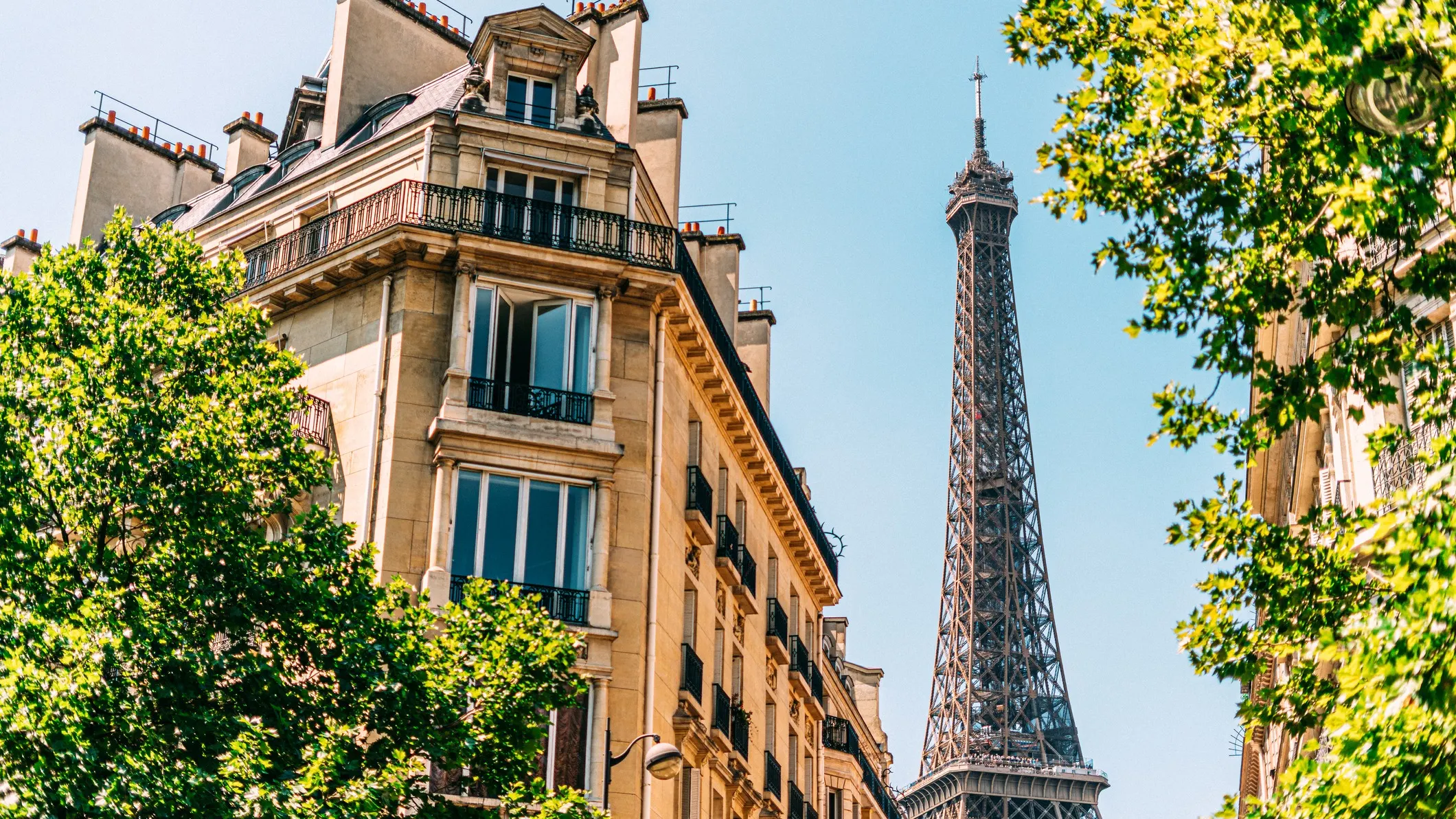
In French culture, there are few social conventions as important as greeting people properly. It’s the number one way to make a good first impression. On the flip side, failing to greet someone properly is also the number one way to offend someone. But don’t worry, once you know the rules it’s easy.
Formal Greetings
In France, it’s polite to say “bonjour” or “bonsoir” (good morning/good evening) when encountering someone, even if it’s a stranger. For example, when entering a doctor’s office, it’s customary to greet those in the waiting room with a brief “bonjour.” You should also do this when entering a small boutique, shop or café.
When addressing or trying to get the attention of a person that you don’t know, you should begin the conversation with: “Bonjour Madame/ Monsieur.” No last name is necessary or expected. For example, if you get on a city bus and want to buy a ticket, don’t just ask to buy a ticket straight away, but say: “Bonjour Monsieur…” then ask your question.
Informal Greetings
The double (and sometimes triple) kisses the French plant on each other’s cheeks in greeting is familiar to anyone vaguely familiar with French culture. This kiss is called la bise. Women generally give la bise to both male and female friends upon greeting them or when being introduced to new people in a social setting. French men give la bise to all female friends and their closest male friends, otherwise they shake hands.
When new to France, follow the lead of a French person you’re being introduced to, but generally women should prepare to give faire la bise (do the kiss) in non-business settings. Men should prepare to shake hands with other men, but faire la bise with women.
Relationships

Family
French families are generally close-knit. Immediate families dine together during the week and it’s common to lunch or dine with extended family on weekends.
Marriage
Marriage rates in France have notably declined over the past 12 years. Many people are opting instead to enter into a civil union, known as a PACS (pacte civil de solidarité). Couples in a PACS enter a formal contract that gives them many, but not all, of the same legal rights that married couples enjoy. While the law was created in 1999 to give same-sex couples increased legal and financial protections, the number of heterosexual couples getting pacsé has overtaken the number of homosexual couples entering the contract. This may be partly due to the fact that same-sex couples are now legally entitled to marry in France.
Friendships
The French have a reputation for being “cold” or “closed” but again this is a misunderstanding of French culture. On the whole, French people tend to behave with more formality and reserve than Americans, especially with strangers or new acquaintances. It may take several months–or even years, in some cases–before you’re invited to a French home, especially among the older generation. But this doesn’t mean that person doesn’t enjoy your company. You’ll find that, whether invited into their homes or not, the French can be extremely kind, loyal, and caring friends and neighbors.
Food & Drink
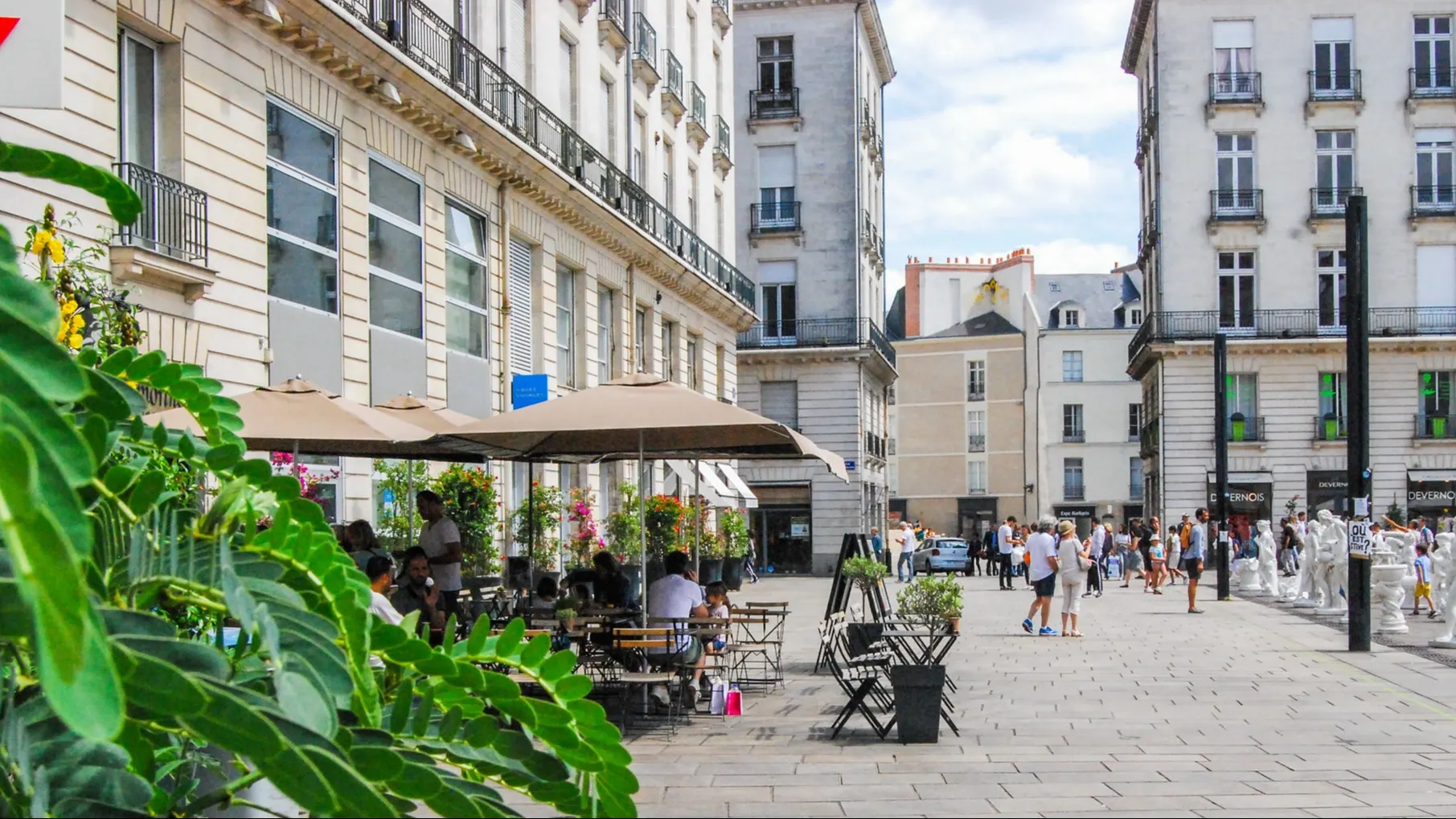
It’s no secret that French cuisine and wine are held in high esteem throughout France and the world. Although the term “French cuisine” is generally used to embrace all foods from France, each region has its own specialties and styles, usually based on local ingredients. For example:
• Normandy’s farmlands and Atlantic coast produce dishes featuring seafood, apples, and dairy products, such as butter, cream, and cheese.• Burgundy, so close to cattle country, Boeuf Bourguignon (cubed beef cooked in red wine) is a well-known classic.• The south of France’s Provence favors using olive oil over butter and traditional dishes often include fresh tomatoes, garlic, and herbs such as basil, rosemary, and oregano.• The Alsace, near the border of Germany, tends to feature hearty meat dishes, choucroute (sauerkraut), and other German-influenced foods.
Wine & Alcohol
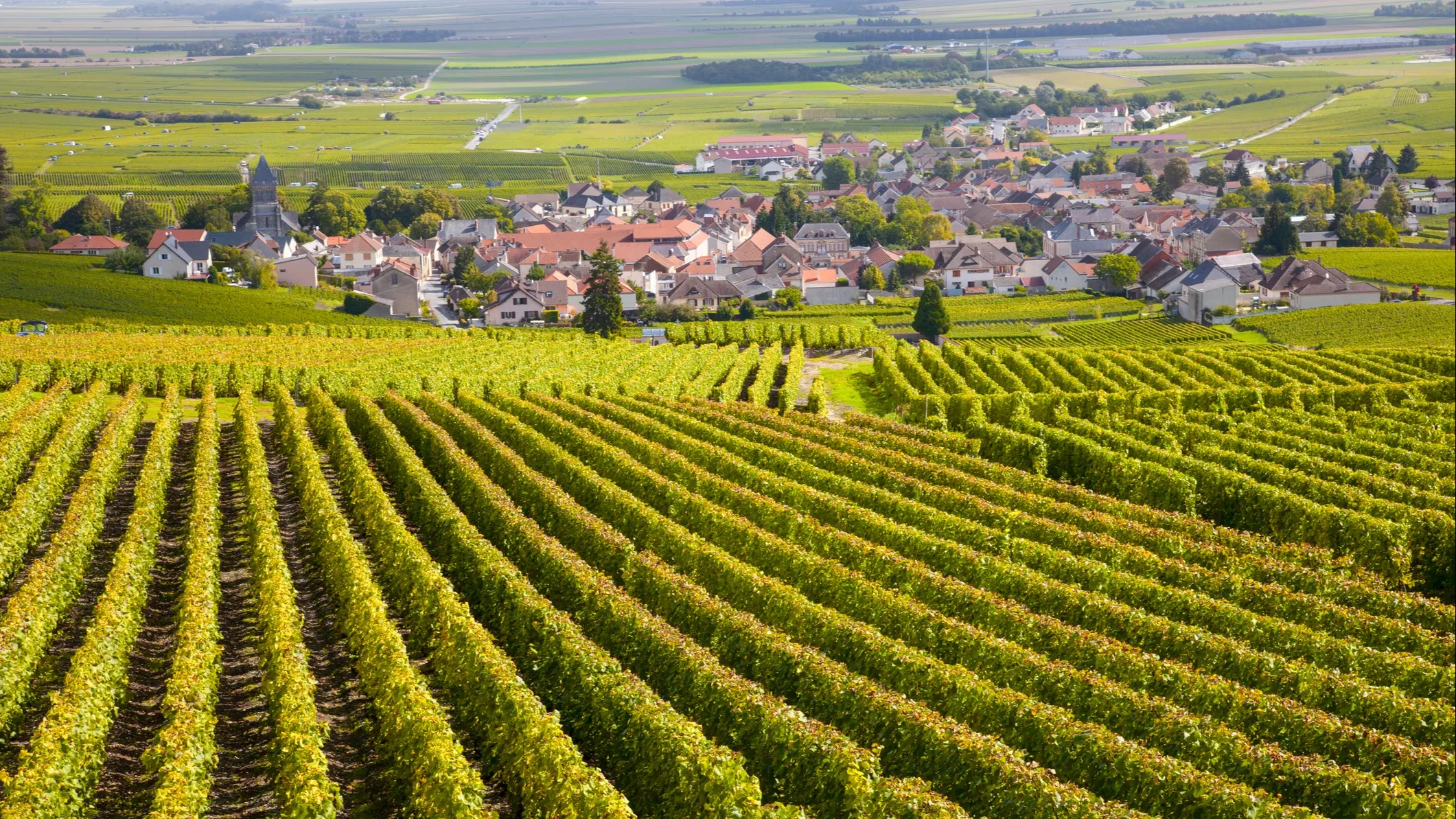
French wines hold probably the most revered cultural status of all. With a history dating back to the Middle Ages, there are 12 major wine-growing regions in France, the most famous being Bordeaux, Burgundy, and Champagne. It’s thanks to France that we have well-known grapes like Chardonnay, Sauvignon Blanc, Cabernet Sauvignon, and Syrah. Indeed, almost all classic grape varietals in the world were originally sourced from France.
In 2016, France exported some $9 billion in wine, amounting to 28.2% of total wine exports. The country exports the highest percentage of fine wines in the world, although not the world’s top wine exporter (that honor goes to Italy…at the moment).
Despite the strong wine culture, most French people don’t drink wine willy-nilly. Wine is generally imbibed with meals, not before or after. Before-dinner drinks are called apéritifs and usually consist of champagne, beer, cocktails, or sweet drinks like fruit juice or port wines. Digestifs, after-dinner drinks, commonly consist of brandies or liqueurs, such as Cognac, Armagnac, Calvados, or fruit-based Eau de Vie.
Get Your Free France Report Here
Get Your Free France Report Here
Learn more about France and other countries in our daily postcard e-letter. Simply enter your email address below and we’ll send you a FREE REPORT: A Taste of France: All the Ingredients for the Good Life.
By submitting your email address, you will receive a free subscription to IL Postcards and special offers from International Living and our affiliates. You can unsubscribe at any time, and we encourage you to read more about our Privacy Policy.
Etiquette
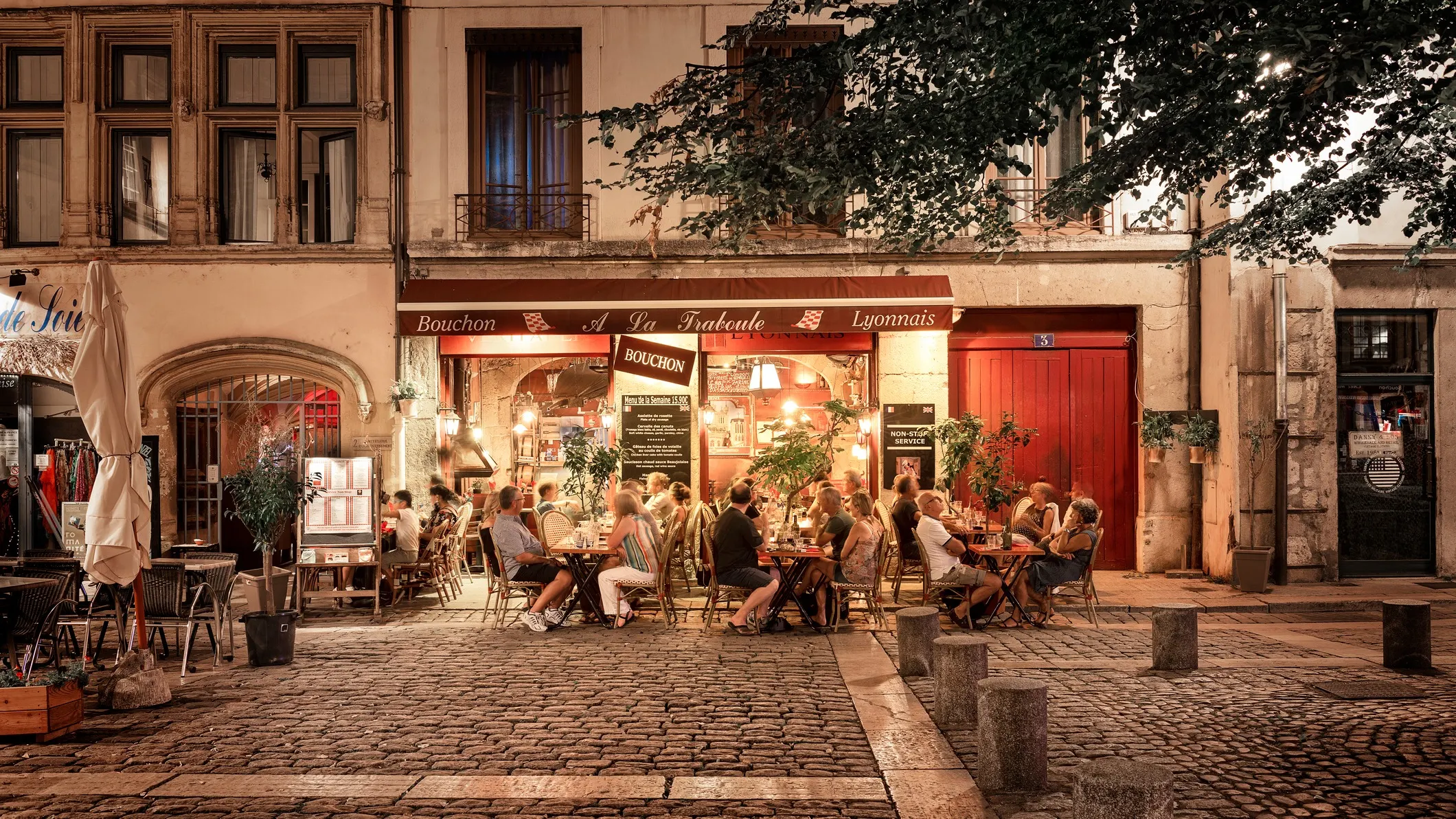
Public Behavior
In France, people are generally expected to behave discreetly, although public displays of affection aren’t uncommon. You’re also expected to speak in quiet tones, particularly in restaurants. Whether true or not, Americans have a reputation for speaking loudly in public. So, if you want to show yourself to be a model of politeness in French society, modulate your tone accordingly.
Guest Etiquette
Being a guest in a French home can feel like tiptoeing through a minefield when you’re not familiar with the culture (and sometimes even when you are). But most French people are forgiving of foreigners who make a cultural faux pas, as long as it remains within the bounds of decency. Still, you can impress French hosts by knowing basics guest etiquette.
Arrival
Never arrive precisely on time for a French dinner party. Being timely is considered slightly rude, as the hosts are often still making final touches. Arriving 10 to 15 minutes after the stated time is considered polite–but don’t arrive later than that.
Gift Giving
When arriving at a French home for dinner, it is customary to bring a small gift to the host. Your safest bet is to bring flowers (avoid chrysanthemums due to their association with death) or a small box of chocolates or fine candies. Unless you know the host well, foreigners should avoid bringing wine as the host will have already paired wine with the meal. Never bring food, unless asked.
Remember the aperitif
Before the meal, there will almost certainly be an apéritif, where drinks will be served along with small items to nibble on. Don’t fill up at this point, as it’s only a teaser before the main meal. Also, remember that you shouldn’t start drinking your apéro until everyone has been served and the host gives a short toast (usually “santé”–good health).
French Table Etiquette
The French have certain dining rules that may come as a surprise to people new to French or European society. Here are a few:
• Wait to be instructed where to sit a French dinner table. The host usually has a seating plan. When possible, guests are seated by alternating men and women, but spouses and partners are almost never seated next to each other.• Do not begin eating until everyone has been served. Often eating commences once the host says, “bon appétit” (have a good meal). If in doubt about when to begin eating, watch your host.• Both hands should remain on the table (but not your elbows) while eating.• As a rule, women do not pour themselves a glass of wine. It’s a tradition that the male host or the French man seated next to a woman pours the wine for her. If you’re pouring wine, never fill the glass to the brim. The glass should be no more than two-thirds full.• The French eat with their fork in the right hand and the knife in the left. They do not switch the knife to the right hand to cut their food. Don’t feel that you are expected to do the same.• When you’ve finished eating, put your fork and knife together and lay them on your plate at the four o’clock position. The host will understand that you don’t want any more food. (This is true for dining in French restaurants as well).• Cheese is served after the main course. One could fill a small book on the proper way to cut different cheeses. Just observe how other French people cut the various cheeses and do your best.
Business Protocol
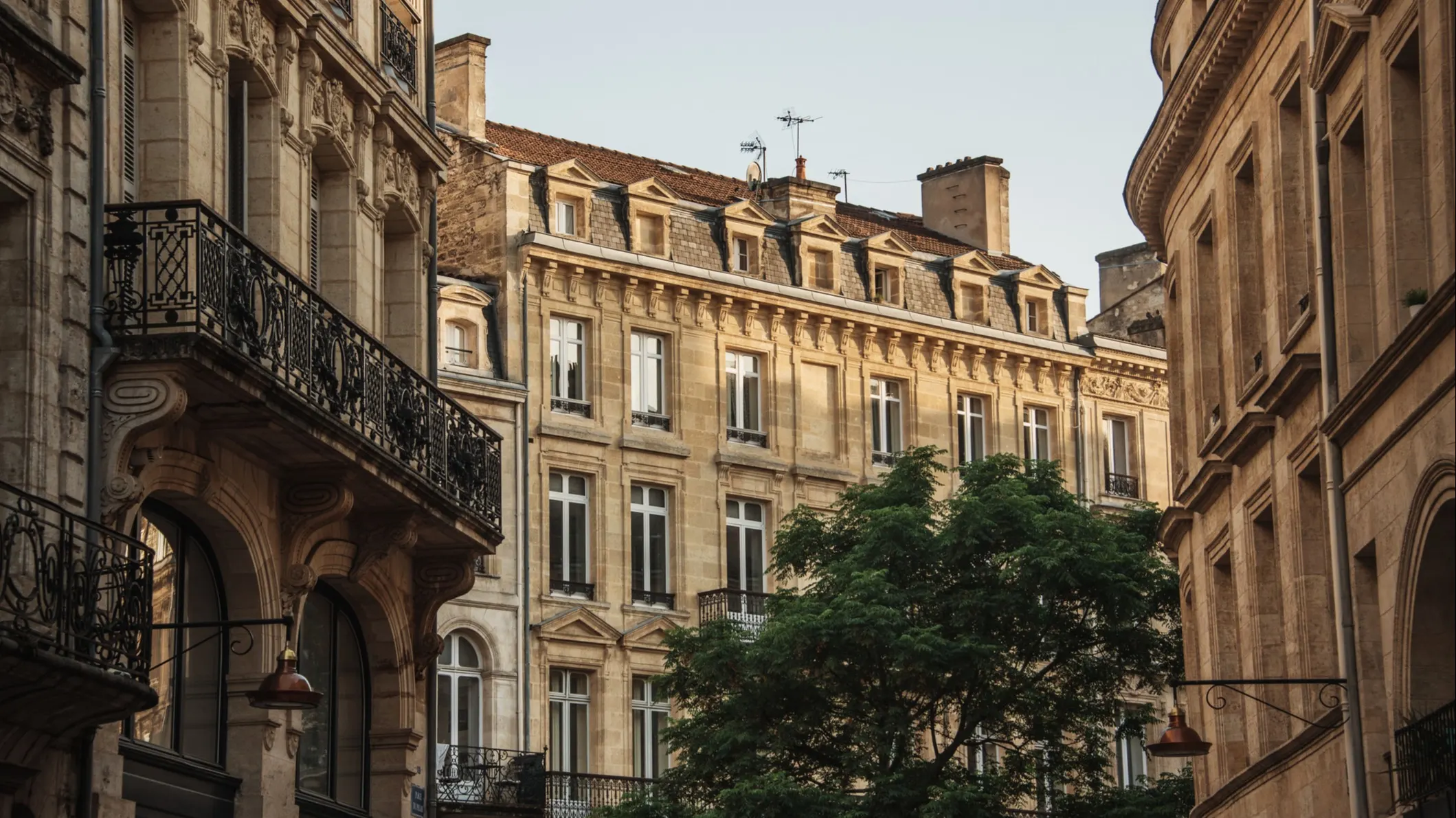
Business culture in France tends to be fairly formal and hierarchy is of the utmost importance.
Greetings
When introduced someone always addresses them as Monsieur or Madame unless you are specifically invited to call them by their first name. Introduce yourself with both names. Shake hands lightly and briskly while looking the other person in the eye.
Attire
Wear formal business attire, unless you are specifically invited to dress casually. But caution! “Business casual” in France usually means that you don’t have to wear a tie with your suit. Appearance is highly judged in France: you should look well-groomed at all times and your clothes should be good quality.
Relationships
Long-term relationships are extremely important in France. When new to the country, start developing a network of French colleagues. Make an effort to engage in light chat about work to build those relationships. Don’t veer in to talk about your personal life. The French value their privacy and rarely talk about their personal lives at work.
Language
Make an effort to learn a few French phrases and terminology relevant to your business. If you don’t know any French, it’s courteous to apologize for not knowing the language.
Meetings/Negotiations
The French speak in a direct manner in meetings and discussions have an intellectual tone. A healthy, intense debate over issues on the agenda is normal in French meetings and it’s not unusual for the discussion to wander from one topic to another. Do not expect any conclusion or decision to be made at an initial meeting–usually, the decision will be made after more discussion and thought. Don’t attempt to strong-arm them into making a decision, this won’t help and could make the situation worse. You’ll have more success reaching French colleagues with well-reasoned arguments and plenty of patience.
Hierarchy
Hierarchy is adhered to strictly in France. Decisions come from those at the upper echelons of authority. Subordinates only act when specifically instructed to do so by a superior or the action is embodied in their job description. This can be frustrating for people who come from cultures that value taking initiative, even if it isn’t in the job description when there is a visible need for action. In France, taking initiative in this way would be viewed as overstepping one’s boundaries.
Video Guide to Traditions and Culture in France
Video Transcript
Hello, bonjour! This is Tuula Rampont International Living France Correspondent coming to you today from my home in the south of France.
We live about 10 minutes from Toulon on the Mediterranean coast, and we live right outside a Provence village called Ollioules.
I'm going to talk to you about culture and traditions in France, something that is very exciting and spoiler alert…it revolves all heavily around food.
I've been here 10 years. Biggest mystery to me, which I have yet to solve, is how the French stay so slim and trim. I’ve packed on a couple kilos or pounds myself. And I think after this little presentation, you will see why. I am going to talk about the food, mainly local traditions in our area. France is a very diverse place. We'll go into that a little bit. And then some things that are tied a little bit to the Catholic culture.
Lots of different groups in France, lots of different celebrations as an overarching general ism…it is quite a Catholic country. Not everybody is practicing…but a lot of the traditions and celebrations are focused around religious holidays.
I won't get into all the traditions today, just give a brief overview.
So first of all, as I mentioned, we live in Provence, which is the south of France. A lot of the traditions in France have to do with, of course, their own history. And then countries that are bordering the region. So if you went up to Alsace-Lorraine, you're going to have a lot of influences from Germany. Of course, Italy. We're touched by, Luxembourg and Belgium going all the way down south you're hitting Spain. You're going to have a lot of Spanish influences on art. We are coming up the French Riviera. And this is pretty large region for France and known as Provence. In our area. They are very into the Provençal traditions. There's even been attempt to revive some of the Provençal language because that's which was originally spoken here. It's called Provençal. And if you go to some of the festivals, you see these stands with people who want to revive the Provençal language.
If you travel to the south of France, you’re going to see the name of the village in French and they're going to have the name of the village right underneath a little panel in Provençal language. So, again, very serious about Provençal traditions.
Harvest Celebrations
For us it kicks off in September, October with Harvest celebrations. So there is the wine harvest. I'm sure many of you are aware that this area and all of France, of course, is big on wine. We have rosy wine, the star, they do make white and red lines down here as well.
People are going to get dressed up in traditional costumes of the era. They're going to have a fête, a celebration in the center of many villages. We went to one a couple of years back in a village about 20 minutes from here, L'albiousse, and they brought out an original wine press on a horse drawn carriage, with everyone in period costume to show you how the grapes were pressed at that time. You can do some wine tasting. And then there's food and there's music sometimes that will kick off with a parade.
A funny thing about these festivities. Again, many of these tied to food and local products of the region is that they often also have meals tied to them.
We have a celebration in our village for a summer soup. It's like a summer minestrone called soupe au pistou stew and made with pesto. And what you do is ahead of time, you preserve a meal. So there'll be a local association that'll be selling tickets. These meals are quite cheap. These are not fancy meals. You get kind of a starter. Might just be like a salad, maybe some goat cheese on the side. Your main dish will be this soupe au pistou minestrone soup. And you'll have something for dessert and probably a glass of wine. The cool thing about this is the whole village comes out. Even if you're not from the village, you can come from a larger city or surrounding town.
It is a great festival atmosphere. And then you're sitting next to people that you maybe never met before. There is a dance floor. There's often music and all ages. That's the coolest thing about France. I have to say, you've got all ages that are out dancing. You've got your toddlers all the way up to grandparents. It's just a ton of fun. Again, no need to speak French to participate. You have tourists coming into these kind of festivities. And it is so much fun to meet friends. And it's a great time out.
Wine harvest in our area is also tied to local products. A couple of villages over from us is a big fig producing area called Solliès-Pont. It's an important producer for us in the area. They’re figs go all around France. And this festival will take place in a couple of weeks. It is the fig festival and it has to do with everything…Fig. You have your fig breads. You have your fig sweets. You can buy fig trees.
A fun thing we like to do when we arrive is to have a fig kir royale, its champagne and you put a little fig liquor in there. So this kicks off at noon. They have a Miss Fig. Everyone is in Provençal costumes. You have a meal later on. There’s fun for all ages and all members of the family.
Products in our region that we would celebrate our festival and our town. This area also has melons like cantaloupe famous for some cured meats, interestingly enough. And of course, big lavender place. Lavender is in bloom right now. Lavender is not near us. It's more in the interior. And there are lavender festivals.
I just want to touch on some of the other festivities and traditions happening throughout the year. Again, this is for Provence it will be different in different regions. We were in Alsace for Christmas. So I want to talk about Christmas, totally different over there. Fun but different traditions.
Christmas Traditions
In Provence there is a tradition for Christmas Eve. Christmas Eve dinner is a very light affair over here. And there is something called the 13 desserts, 13 desserts. A lot of people do not carry on these traditions. This is very traditional Provençal thing happening in France. 13 desserts represent Jesus and the apostles. And there's a bit of debate about what these 13 dessert deserts are. But basically, you have dates, pears, oranges, candied fruit. There is a cookie here called the calisson, and that comes from the town of Aix en Provence a very beautiful town.
The calisson cookie is made with almonds and with an orange blossom. It's delicious. So these 13 desserts are brought out. There are three white tablecloths to represent the Trinity and people dress traditionally. Again, this is for Christmas Eve.
Christmas lunch itself is a huge affair. So all around France, a very big deal is traditional foods that you eat, etc.. And this really kicks off the holiday season.
And one thing that's really cool is in January, it's January 6, the epiphany or the first Sunday after the first of January. And this is where we eat the Kings cake.
This is a tradition I know in other countries and in France its called the Galette des Rois. The funny thing about this, is that there is a little something hidden in this cake. This cake is made with a Frangipane. I couldn't find a translation for this, I guess, like a sweet almond kind of paste. It's kind of rich.
There is something hidden in the cake in the French. It's called the fève, which is kind of like the bean, could be little plastic Jesus. When you go to the bakery. You get your king cake and the baker will give you a cardboard crown. You eat a king cake. Whoever gets this little bean or baby Jesus is the king for the day. And they wear the crown and they're quite happy. This might make more sense that if I tell you everybody at this time is drinking hard cider.
The king cake goes on all throughout January. It's a fun time to meet with friends. What you do is in on the weekend, you invite friends over. The French stick to their meal times and that’s maybe why they are so thin. But around four o'clock is called le goûter. This is snack time. So when you have snack time, 4 o clock, you would invite your friends over, we do this every year. You will buy the king cake and they'll probably offer to bring the cider over. So you're drinking your hard cider, you find your little bean and somebody is the king for the day. So that is the period of epiphany.
Mardi Gras
We're going to move on to Mardi Gras. It's a whole other story. I want to say quickly, really another cool thing. I don't know how many people are practicing Catholics, because this is kind of, overarching. These public holidays are lots of different celebrations going on.
There is a month practically for crêpes. La Chandeleur. I think it's 40 days after Christmas. You eat crêpes. In English, this is called Candlemass. There are crêpes everywhere…
And the supermarkets you have promotion's for crêpes. You've got the crêpes pan. They'll have all the flour, Nutella, jams, salted caramel. It is everywhere. And people are looking forward to it young and old. And we're at home flipping crêpes . And that's the thing again, tradition in France. If you control your crêpes up in the air and you flip it perfectly, that brings good luck
The last one I'm going to talk about is the start of Lent. Its 47 days before Easter. Big deal here. I'm sure many of you are aware that Mardi Gras is a French phrase and mardi means Tuesday, and gras means fat. So again, a lot of eating going on. The main thing, you eat some crêpes, but also maybe you know this already, beignet, which are just doughnuts. And they also have a fried pastry topped with sugar called Oriete. Big foodie day going on. You're eating crêpes after you're not traditionally doing less. But we go crazy on the Fat Tuesday. And for children, I found this really interesting. Children at school dress up as if it was kind of Halloween. They go into costumes. Everything from you could be a princess dragon, Harry Potter, Ninja Turtle. Doesn’t matter. And what they have are a little parades at school and they'll have some sweets, some bonbons, and they get to show off their costumes. So that's kind of a Mardi Gras period.
Hosting a Dinner Party
I'm going to finish off your soon. I’ve barely touched the surface. There's so much going on in France, I hope at least it's been a bit interesting. Just want to tell you a little bit about raclette during this winter period. Raclette is a time for people to get together around melted cheese. Raclette is the French answer to fondue. I’m not sure if raclette has made it over to the U.S. When we first heard about it it did sound kind of crazy and a bit strange.
What you do is you have a machine. This looks like a grill. You buy special slices of cheese and you're going to get your friends over and they're going to sit around the dinner table. And you put like a little spatula, little metal spatula. And you heat up your cheese and the cheese is going to go on top of baked potatoes that are covered with Charcuterie. And charcuterie are cold cuts. It sounds strange. It sounds bizarre. It's delicious and super fattening.
So you can think that winter is a difficult time. Even here in the south of France the weather is not so fantastic. A lot of indulgence going on, a lot of comfort food. The big deal with this Raclette, I have to say, I am a convert, actually. Is very, very good. The big deal with the Raclette is it's very easy to do. I will briefly touch on daily traditions in French life. If you hosted a dinner outside of a raclette, a dinner is going to be five courses. Aside from that, you're going to have an aperitif time where you're going to invite people over for some drinks and going to make some nibbles. And usually those are homemade. Then you're going to have an entrée. It doesn't have to be something fancy, but it usually is. But it's home cooking. It's not something that you'll find in a restaurant. Then you're going to have your main dish, something I like to do is an easy steak with sauce and a side of mashed potatoes and some vegetables don't have to be, you know, go crazy on that. There is also a salad and a cheese course. I think that the cheese comes first and then the salad and then there'll be a dessert. Again it can be a tart, but sometimes more elaborate than that. Hosting a dinner is a huge affair for the host of the hostess.
I love it. I complain about it a lot, but it takes a lot of work at the supermarket to have my list. And I think, oh my God, the cheese. I forgot the cheese. I got the cheese. What about the salad? So I'm going to put a point in all of this period by saying that that's another reason the raclette is so popular, because even though the French do like these long dinners, they're also very happy just to do very something very simple and easy. Just meet with friends and enjoy some of this winter comfort food. I could go on and on a lot to cover. We didn't really get into the spring or summer. It hopefully is a nice overview.
Get Your Free France Report Here
Get Your Free France Report Here
Learn more about France and other countries in our daily postcard e-letter. Simply enter your email address below and we’ll send you a FREE REPORT: A Taste of France: All the Ingredients for the Good Life.
By submitting your email address, you will receive a free subscription to IL Postcards and special offers from International Living and our affiliates. You can unsubscribe at any time, and we encourage you to read more about our Privacy Policy.















